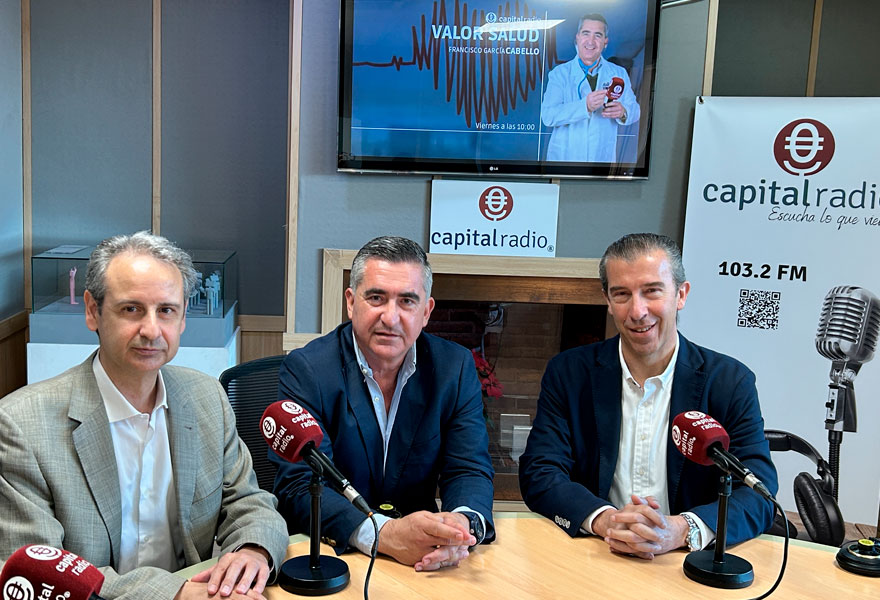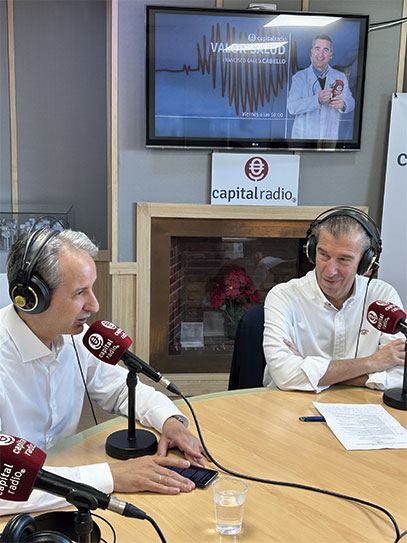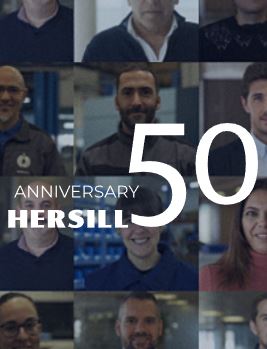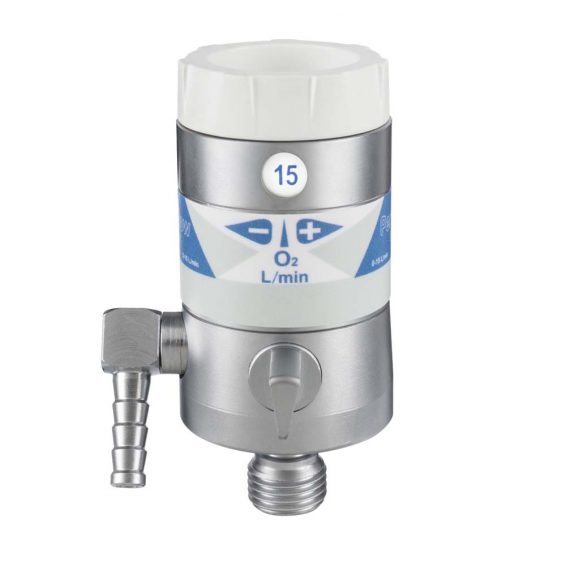HERSILL | NEWS | UPDATES |
On 30 May, the programme Valor Salud, broadcast by Capital Radio, dedicated part of its slot to the importance of engineering in the healthcare sector. It did so with Oscar M. Jordan, manager of Hersill, and Javier Perez de Vargas, CEO of the Royal Academy of Engineering (RAI). This institution held the “Engineering for Health” conference in Bilbao in May, in which Hersill participated.
One of the topics addressed during the programme was the need to strengthen the links between academia, the technology industry and the health system. “In Spain we have a very powerful health system, with great professionals and a strong link with the academic world,” he explained. For him, this linkage must be complemented by a third essential force: industry. “The transfer of knowledge between university and business is key for us to be able to take advantage of all the capabilities of the health system,” he stressed.
In his opinion, it is not only the large multinationals that must play a leading role in this change, but also the small and medium-sized technology companies that operate locally: “We have to take into account that the industry is not only the multinationals, which are of course important, but also the more local industry, which is willing to have a much more fluid collaboration”.
He also addressed the slow pace at which innovation reaches the market. According to Oscar M. Jordan, although progress is being made, more needs to be done: “We must continue to make progress, because we need to develop national capacities so as not to fall behind”. In this regard, he stressed the importance of strengthening the health sector as one of the strategic pillars: “The field of health is very important, as we saw with the pandemic, because improving people’s health affects everyone”.
The vision of the Royal Academy of Engineering
Javier Perez de Vargas focused precisely on the fact that health technology should be at the top of the public agenda: “One of the buzzwords is the strategic nature of certain sectors. We talk about the defence sector or telecommunications, but there is an even more strategic area: health technology“. From his perspective, this sector should receive preferential attention and strong support, as the well-being of society depends to a large extent on it.
The “Engineering for Health” conference, organised by the Royal Academy of Engineering, was designed to recognise the value of dual technologies and how they are transforming the healthcare sector. “We have to move from the muses to the theatre and get closer to reality. Engineering is the best bridge to turn these strategies into reality,” he said.
On the challenge of doing more with less, Perez de Vargas was clear: “I don’t know if we have to do it with less; I would be satisfied if the resources were the same, but I do believe that we have to do more and, above all, do it better.
Another of the aspects addressed was the training of new professionals capable of working in both worlds: healthcare and technology. For Pérez de Vargas, we are witnessing a new stage in the training of talent: “We have to generate hybrid profiles, a new generation of professionals who know about medicine, but also about technology. Not as a risk, but as a complement to improve their efficiency”.
In this sense, he insisted that technology will be “the best lever” to improve the efficiency of the health system, both public and private. But to achieve this, education must respond to these new knowledge profiles.
Hybrid training and gender equity: keys to a more efficient health system
The issue of gender equality in STEM careers also had a relevant space. Perez de Vargas warned about the low presence of women in many branches of engineering: “In engineering schools, with one exception, only one in four students is a woman, while society’s talent is 50% female”. However, the trend is encouraging: “In biomedical engineering, parity has already been achieved. We attend classes where there are as many women as men, and that is a source of satisfaction.
For him, this change represents a new paradigm: “Engineering is far from the stereotypes that weigh it down. It is an engineering of services, of health, of teamwork. It is communication, it is working for the well-being of society.
Sharing this vision, Oscar M. Jordan pointed out the need to incorporate more women into the world of engineering applied to health: “I encourage all girls and young women to see engineering studies as a future where they can develop perfectly”. She also emphasised the growing demand for talent: “Companies are going to need many professionals, and we often find it difficult to find them. Let’s hope that women will join in strongly”.
The “Engineering for Health” conference and its subsequent reflection in Valor Salud made it clear that collaboration between science, technology and industry is not a long-term goal, but an immediate necessity. Hersill, as a Spanish company committed to the development of healthcare technology, values very positively this type of meeting place, where key ideas are consolidated to build a more efficient and accessible healthcare system, aligned with the challenges of the next decade.
Hersill is part of the Technologies that make a country campaign (#TecnologíasQueHacenPaís), which showcases the technological companies that develop, manufacture and innovate in Spain. Its work is actively contributing to the strengthening of the national technology industry, the creation of jobs and economic progress, while reinforcing Spain’s industrial autonomy to face the challenges of the future.




